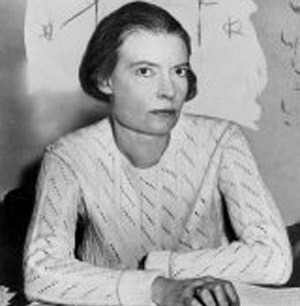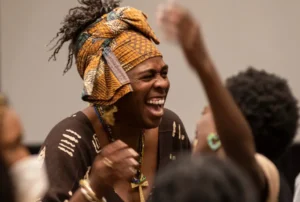
September 24, 2015; TIME
In his speech before Congress, Pope Francis repeatedly cited Dorothy Day and Thomas Merton. Merton was a Trappist monk who many of us Baby Boomers remember for his participation in anti-war efforts and his longstanding opposition to nuclear brinksmanship. As a widely published writer despite his monastic lifestyle, Merton was an influential thinker in American Catholicism.
From a nonprofit perspective, we Boomers, especially those of us who learned from our Greatest Generation parents stories about social justice activism and organizing during and after the Great Depression, couldn’t have been more taken by the Pope’s references to Dorothy Day.
Standing in stark contrast to many of today’s fashionable, au courant social justice advocates, Dorothy Day was the real deal. Day founded the Catholic Worker Movement in 1933. According to Day’s biographer (and Merton’s biographer as well), Jim Forest, Catholic Worker centers were “houses of hospitality” where volunteer workers provided “food, clothing, shelter and welcome…to those in need.” Day was also a journalist and edited the newspaper of the New York City Catholic Worker community, the Catholic Worker, which published the writings of people like Merton and anti-war activist Daniel Berrigan.
The values underlying the Catholic Worker movement were an activist version of what Day saw as the essence of her religion. Forest described the essence of the value structure in this way: “Beyond hospitality, Catholic Worker communities are known for activity in support of labor unions, human rights, cooperatives, and the development of a nonviolent culture. Those active in the Catholic Worker are often pacifists, people seeking to live an unarmed, nonviolent life. During periods of military conscription, Catholic Workers have been conscientious objectors to military service. Many of those active in the Catholic Worker movement have been jailed for acts of protest against racism, unfair labor practices, social injustice and war.”
Sign up for our free newsletters
Subscribe to NPQ's newsletters to have our top stories delivered directly to your inbox.
By signing up, you agree to our privacy policy and terms of use, and to receive messages from NPQ and our partners.
TIME cited the comment of historian David J. O’Brien that Dorothy Day was “the most significant, interesting and influential person in the history of American Catholicism.” TIME noted that Day was first arrested in 1917 as a suffragette and last arrested in 1973 at a workers’ demonstration in California. Her philosophy, according to TIME, was “pro-union, anti-poverty, pacifist, anti-government.” Day explained her beliefs in this way in a 1971 interview with PBS: “If your brother is hungry, you feed him. You don’t meet him at the door and say, ‘Go be thou filled,’ or ‘Wait for a few weeks, and you’ll get a welfare check.’ You sit him down and feed him. And so that’s how the soup kitchen started.”
Here is what the Pope said specifically about Day: “In these times when social concerns are so important, I cannot fail to mention the Servant of God Dorothy Day, who founded the Catholic Worker Movement. Her social activism, her passion for justice and for the cause of the oppressed, were inspired by the Gospel, her faith, and the example of the saints.”
Like Pope Francis for his condemnation of unrestrained capitalism in his Laudato Si encyclical, Day shared a similar perspective, though expressing it in the language of the 1930s: “We believe in widespread private property, the de-proletarianizing of our American people. We believe in the individual owning the means of production, the land and his tools. We are opposed to the ‘finance capitalism’ so justly criticized and condemned by Karl Marx but we believe there can be a Christian capitalism as there can be a Christian Communism.” The White House comments of Pope Francis condemning economic inequality prompted some typically ugly tweets from conservative commentator Ann Coulter, most notably, “I’m an American and this is why our founders (not ‘immigrants’!) distrusted Catholics & wouldn’t make them citizens”. Back in the era when America’s corporate elite railed about FDR’s New Deal, Coulter would have said the same about Dorothy Day.
A Catholic Worker website lists Catholic Worker houses in 208 communities in the U.S. and 28 outside of the U.S. and 67 in the U.S. with their own websites. Forest writes, “Catholic Worker communities have refused to apply for federal tax exempt status, seeing such official recognition as binding the community to the state and limiting the movement’s freedom,” but a few dozen actually appear as 501(c)(3)s on GuideStar. The reality of operating in today’s voluntary sector means that even groups motivated by the vision and beliefs of Dorothy Day often end up applying to the IRS for the ability to solicit and receive tax deductible donations.
An anomaly in the Pope’s visit is his canonization of Junipero Serra, whose missionary work has been widely condemned by Native Americans for forced conversions and other practices. As a more social justice-oriented alternative, some have suggested Dorothy Day for sainthood. Being designated a saint was probably the last thing she would have wanted. Rather, Dorothy Day thought everyone should live the lives of saints. When some people say that nonprofits are doing God’s work, they may be unwittingly channeling the underlying ideas and motivations Dorothy Day and the Catholic Worker Movement.—Rick Cohen












